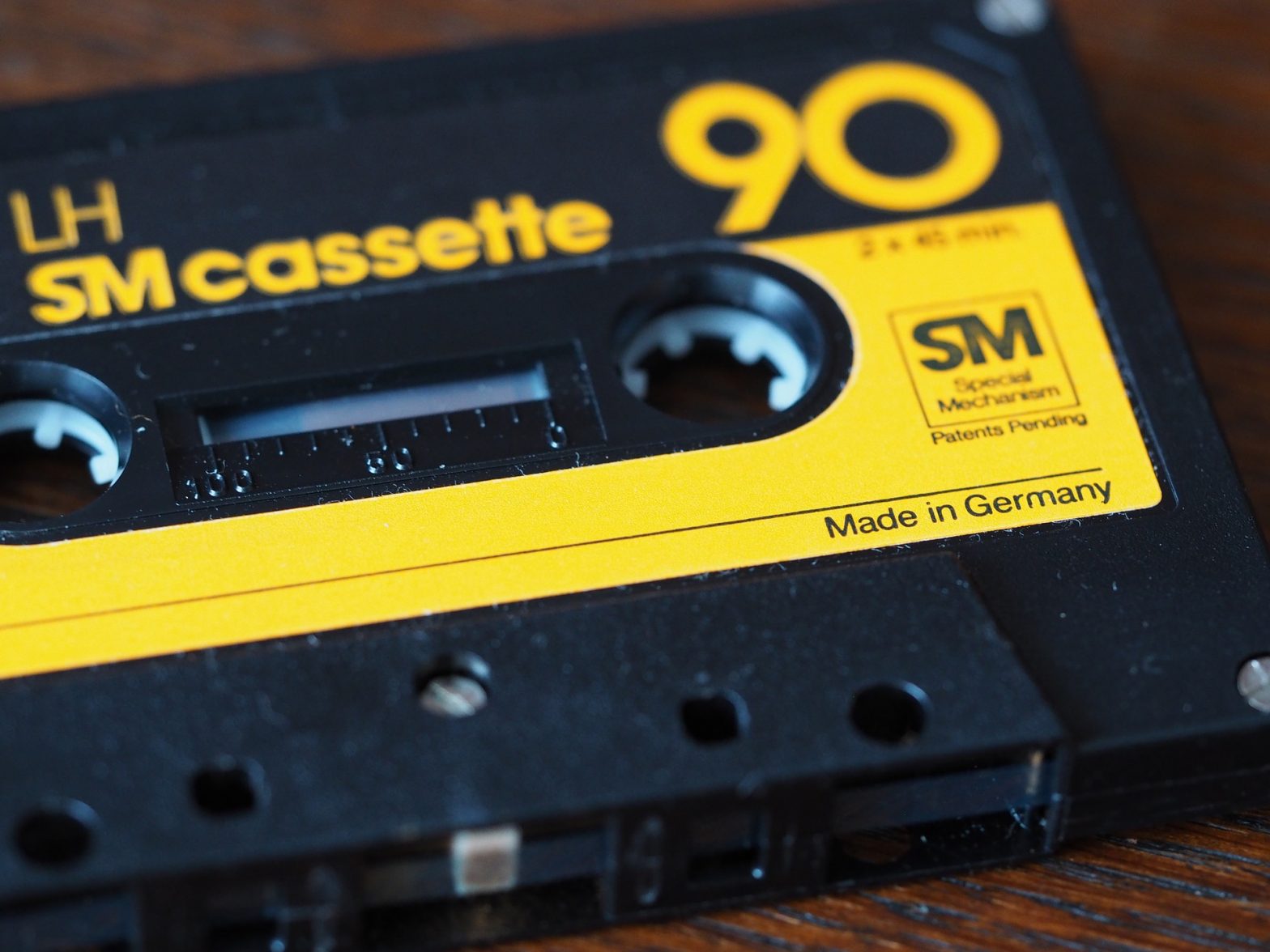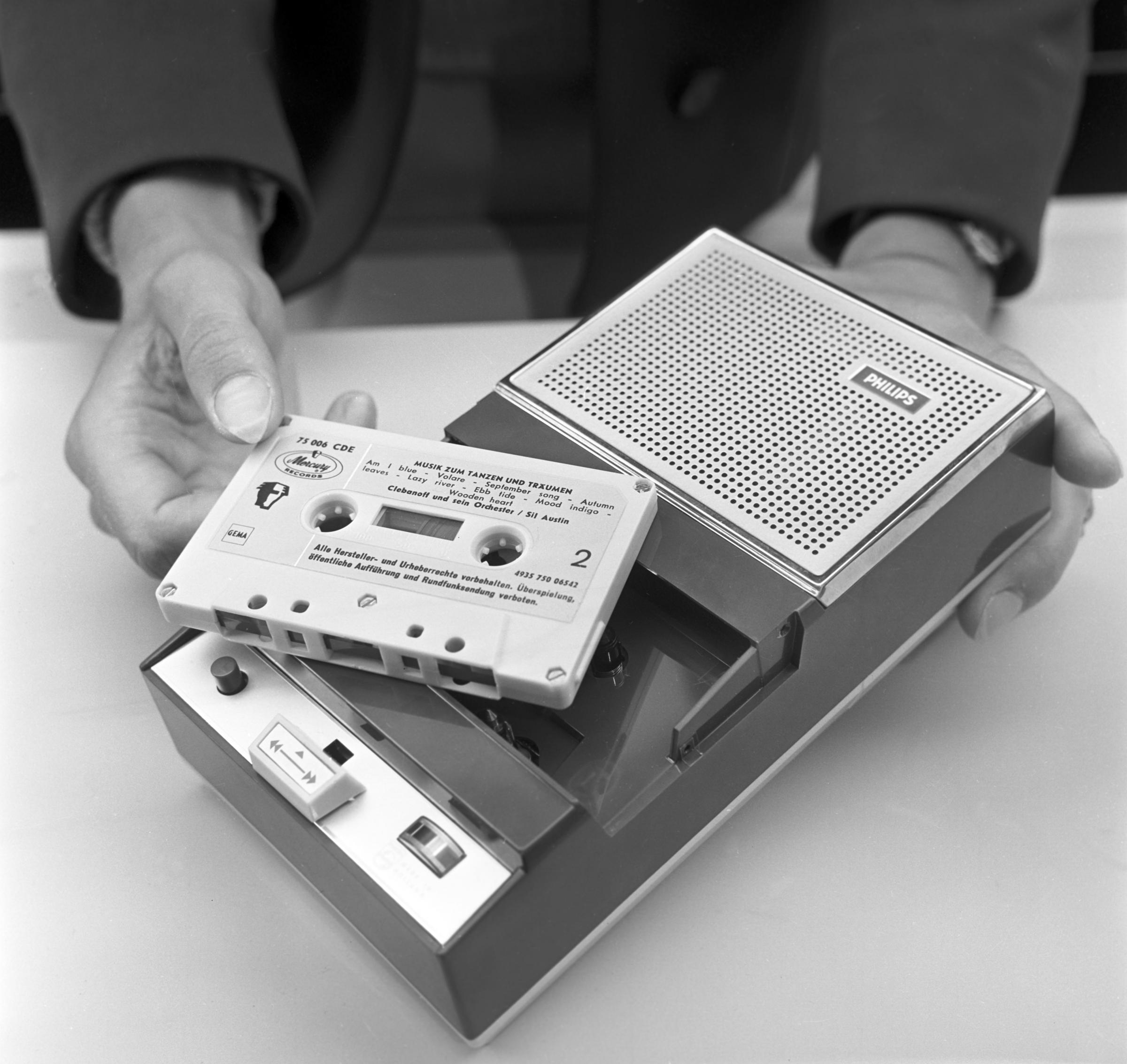

Adding that he had no memory of writing the song, Richards said he woke up one morning to find that his Philips cassette recorder was at the end of its tape - apparently, he concluded, he had written something during the night. "I wrote 'Satisfaction' in my sleep," Richards wrote in Life, his 2010 autobiography. Those who have used cassettes to quickly record music include the Rolling Stones' Keith Richards, who famously said he captured one of his band's biggest songs in the middle of the night. Unsigned bands have also relied on them as a way to promote their music. For decades, music fans have used mixtapes to curate and share their favorite songs. The resurgence is driven by a mix of nostalgia and an appreciation for tapes' unique status as a tangible but flexible format. But interest in the format has surged in recent years, despite the remaking of the music industry in the digital and streaming age. Similar predictions were made about the cassette tape.
#Cassette tape portable#
Describing how little things have changed, he added, "So next time you make that perfect playlist on Spotify or send a link to share a song, you can thank Lou Ottens."Ĭassette tapes gave new control to music fans, allowing them to create and share their own collections of songs in a cheap and easily portable format.
#Cassette tape how to#
"Cassettes taught us how to use our voice, even when the message came from someone else's songs, compiled painstakingly on a mixtape," Taylor said. She noted that Ottens' original wooden prototype for the cassette "was lost when Lou used it to prop up his jack while change a flat tire."īorn in 1926, Ottens went from building a radio for his family during World War II - it reportedly had a directional antenna so it could focus on radio signals despite Nazi jamming attempts - to developing technology that would democratize music. "Lou was an extraordinary man who loved technology, even as his inventions had humble beginnings," said Philips Museum Director Olga Coolen. The result was unveiled to the world in 1963, and the "compact cassette" quickly took off: It was "a sensation" from the start, Ottens told Time in 2013, on the cassette's 50th anniversary. Trying to envision something that didn't yet exist, Ottens used a wooden block that was small and thin enough to fit in his pocket as the target for what the future of tape recording and playback should be.
#Cassette tape license#
As Taylor says, "He advocated for Philips to license this new format to other manufacturers for free, paving the way for cassettes to become a worldwide standard."īut first, he had to invent it. Ottens' goal was to make something simple and affordable for anyone to use. "Lou wanted music to be portable and accessible," says documentary filmmaker Zack Taylor, who spent days with Ottens for his film Cassette: A Documentary Mixtape. He took on the challenge of shrinking tape technology in the early 1960s, when he became the head of new product development in Hasselt, Belgium, for the Dutch-based Philips technology company.


The cassette tape was Ottens' answer to the large reel-to-reel tapes that provided high-quality sound but were seen as too clunky and expensive.

Ottens died last Saturday, according to the Dutch news outlet NRC Handelsblad, which lists his age as 94. Ottens was a talented and influential engineer at Philips, where he also helped develop consumer compact discs. Lou Ottens, who put music lovers around the world on a path toward playlists and mixtapes by leading the invention of the first cassette tape, has died at age 94, according to media reports in the Netherlands. Lou Ottens, who led the invention of the first cassette tape, has died at 94.Īlfred Assmann/Picture Alliance via Getty Images A Philips cassette tape is shown in 1965.


 0 kommentar(er)
0 kommentar(er)
